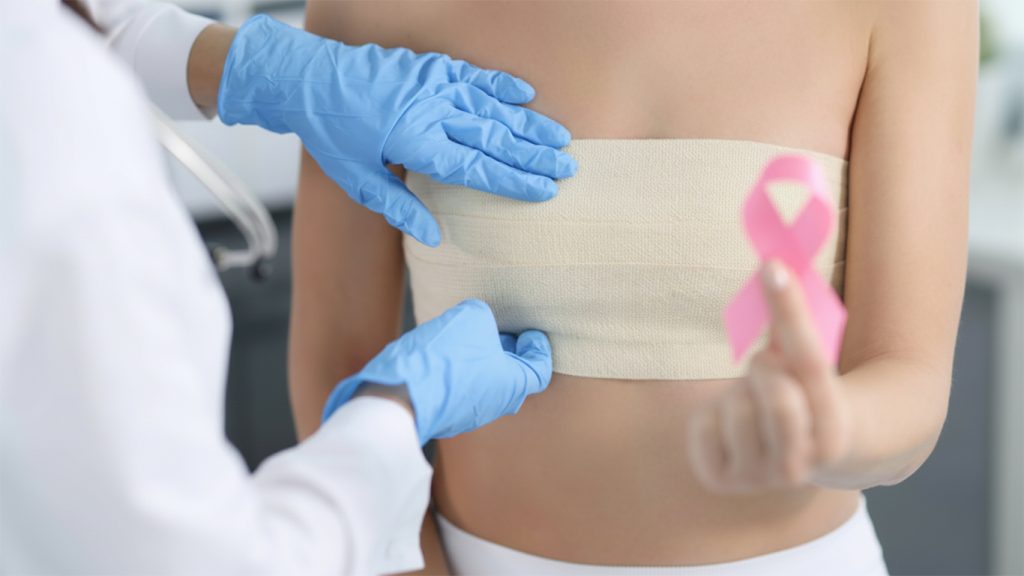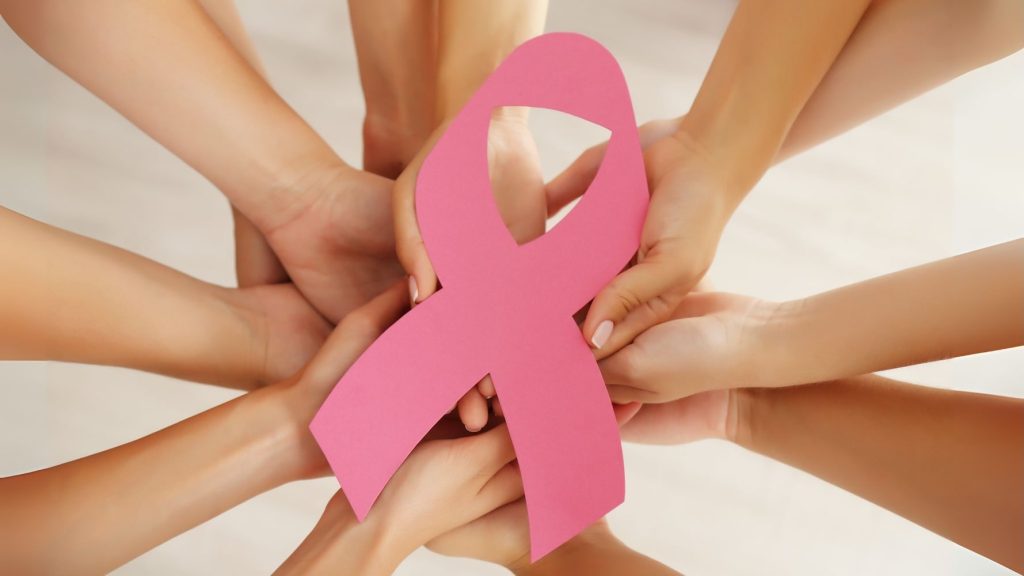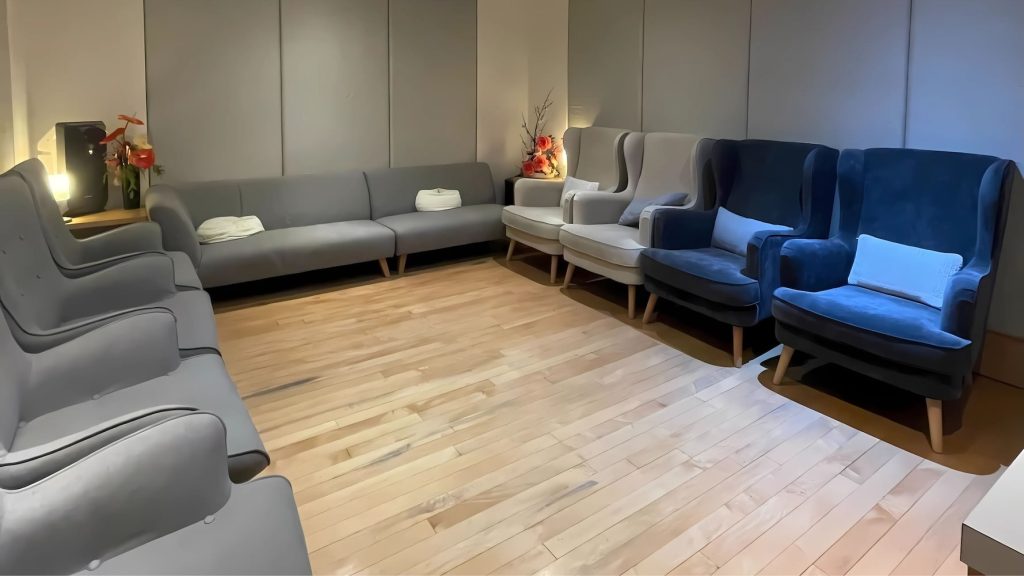Many women associate breast cancer with a visible lump, but symptoms aren’t always obvious. Early signs like skin dimpling, nipple changes or unusual discharge can easily be missed or mistaken for other conditions. That’s why early detection of breast cancer, especially as surgical options have evolved to treat cancer while considering emotional well-being and appearance.
Oncoplastic breast surgery blends cancer removal with reconstructive techniques, helping to preserve the shape and appearance of the breast during treatment. While this approach reduces the traditional trade-off between treatment and aesthetics, it may not be suitable for everyone. Factors such as tumour size, location, breast size and cancer stage can influence whether breast-conserving surgery is possible. When mastectomy is recommended, we work closely with each woman to ensure her choices are respected and aligned with her goals and values.
With the right information, women can take an empowered role in their care. This guide will help you recognise early signs, understand treatment options and learn how today’s breast cancer care in Singapore supports both healing and quality of life.

Breast Cancer in Singapore: The Current Landscape
Breast cancer remains the most common cancer among women in Singapore. According to the Singapore Cancer Registry, about 1 in 13 women will be diagnosed during their lifetime, with the highest incidence among those aged 40 and above. Encouragingly, survival rates are rising, largely due to early detection of breast cancer and timely access to treatment.
With increasing awareness, more women are undergoing screening at earlier stages, improving their outcomes significantly. Public campaigns and healthcare providers have helped normalise conversations around breast health. The healthcare system now provides a spectrum of options for breast cancer treatment in Singapore, ensuring women receive not only effective care but also support for long-term well-being.
The Power of Early Detection
Early detection of breast cancer begins with understanding that a lump is just one of many symptoms. Others include changes in breast shape, skin texture or persistent pain. These changes may be caught during routine self-examinations or through clinical screenings.
Singapore offers several screening tools:
- Mammograms (subsidised under Screen for Life for women aged 50+)
- Ultrasound, especially for younger women or those with dense breast tissue
- MRI for high-risk individuals
- Biopsy, when further investigation is needed to confirm or rule out cancer
These screening tools form the foundation of early detection of breast cancer when used appropriately. Women aged 40–49 are encouraged to screen annually; those 50+ can consider screening once every two years. Our doctor can help determine the optimal schedule based on personal risk factors.
Preparing for a Screening
Whether you’re due for a screening, knowing what to expect helps ease anxiety. During a mammogram or ultrasound, mild discomfort is normal, but the process is quick and safe. For more detailed imaging, our breast specialist will explain any pre-procedure instructions.
Bring questions to your appointment:
- What are the next steps if abnormalities are found?
- Will I need further tests before undergoing breast cancer surgery in Singapore?
- Is breast-conserving surgery an option for me?
Emotional support plays a key role. Consider involving a loved one or accessing counselling services, which are widely available at hospitals and breast care centres in Singapore.
Moving Forward: Exploring Your Surgical Options with Confidence
After your screening, the next step is understanding the surgical approach that’s right for you. Every woman’s body, diagnosis and personal values are different—and so are her needs during treatment.
Once test results and imaging are reviewed, our breast surgeon will walk you through suitable options based on your condition and preferences. Exploring your breast cancer treatment options at this stage allows you to take an informed, empowered role in your care.
One option that may be offered is oncoplastic breast surgery, which combines cancer removal with aesthetic reconstruction techniques in a single operation. This approach helps maintain breast shape and may support both physical and emotional recovery.
At Andrew Lee Breast Clinic, we’re here to help you understand each choice, whether you’re considering reconstruction or other breast cancer treatment options. With guidance from a dedicated breast surgeon, you’ll be able to move forward with confidence, knowing your care is personalised to support your healing—medically, emotionally and respectfully.
Surgery Preparation Checklist
If you’ve scheduled surgery, preparation is key to a smooth recovery.
Here’s a basic checklist:
- Complete pre-op tests (blood work, imaging)
- Stop smoking (if applicable)
- Discuss expectations clearly with our surgeon
- Arrange support for the recovery period (transportation, childcare, time off work)
Being mentally prepared can help you approach the procedure with greater clarity and confidence in your treatment journey.

Recovery and Follow-Up Care at Our Clinic
Post-surgery recovery varies depending on the extent of your procedure. Most women stay in the hospital for 1–3 days and return to their daily routines within a few weeks. You’ll receive guidelines for wound care, drain management (if applicable) and pain control.
Follow-up appointments will include physical checks and possibly imaging for monitoring healing and recurrence. Emotional recovery is equally important. Talk to your doctor if you’re feeling overwhelmed. Many clinics provide integrated support, from physiotherapy to counselling.
Your commitment to long-term monitoring is crucial in maintaining your health and detecting any potential issues early.
What’s the Cost of Breast Surgery in Singapore
The cost of breast surgery in Singapore can vary significantly depending on the procedure type and whether you’re in a public or private facility.
- Mammogram: Subsidised under Screen for Life (approx. $50 or less, depending on a case-by-case basis)
Oncoplastic breast surgery: Ranges from $8,000 to $20,000 in private hospitals; lower in public hospitals, depending on each case and the available subsidies
- Breast MRI and Ultrasound: May add $200–$2,000 depending on complexity
Medisave, MediShield Life and Integrated Shield Plans may offset a portion of the costs. Always speak to your financial counsellor to understand your entitlements.
Frequently Asked Questions
Your suitability depends on the size and location of the tumour, your breast shape and your personal goals.
If something unusual is detected, you may need further tests such as an MRI or biopsy. These help confirm whether treatment is needed and allow our breast surgeon to plan the next steps clearly with you.
Yes, reconstruction can often be done simultaneously or as a follow-up procedure. It’s designed to help restore the breast’s appearance while supporting your physical and emotional recovery.
Many hospitals and clinics provide counselling, peer support groups and care coordinators to walk with you throughout your journey. You’re not alone. Support is available at every stage.
Yes. Most medically necessary breast surgeries are eligible for Medisave and may be covered under MediShield Life or Integrated Shield Plans.
Empowerment Through Early Detection and Modern Surgery
The journey doesn’t begin with a lump. It begins with awareness. Early detection of breast cancer gives women a stronger voice in their treatment decisions and leads to better outcomes.
With the availability of oncoplastic breast surgery, women can access both life-saving care and aesthetic restoration. Whether you’re just beginning your screening journey or exploring your options for breast cancer treatment in Singapore, know that help is available every step of the way.
Take the next step. Book your screening or consult with our breast specialist today. Your health is your strength.







